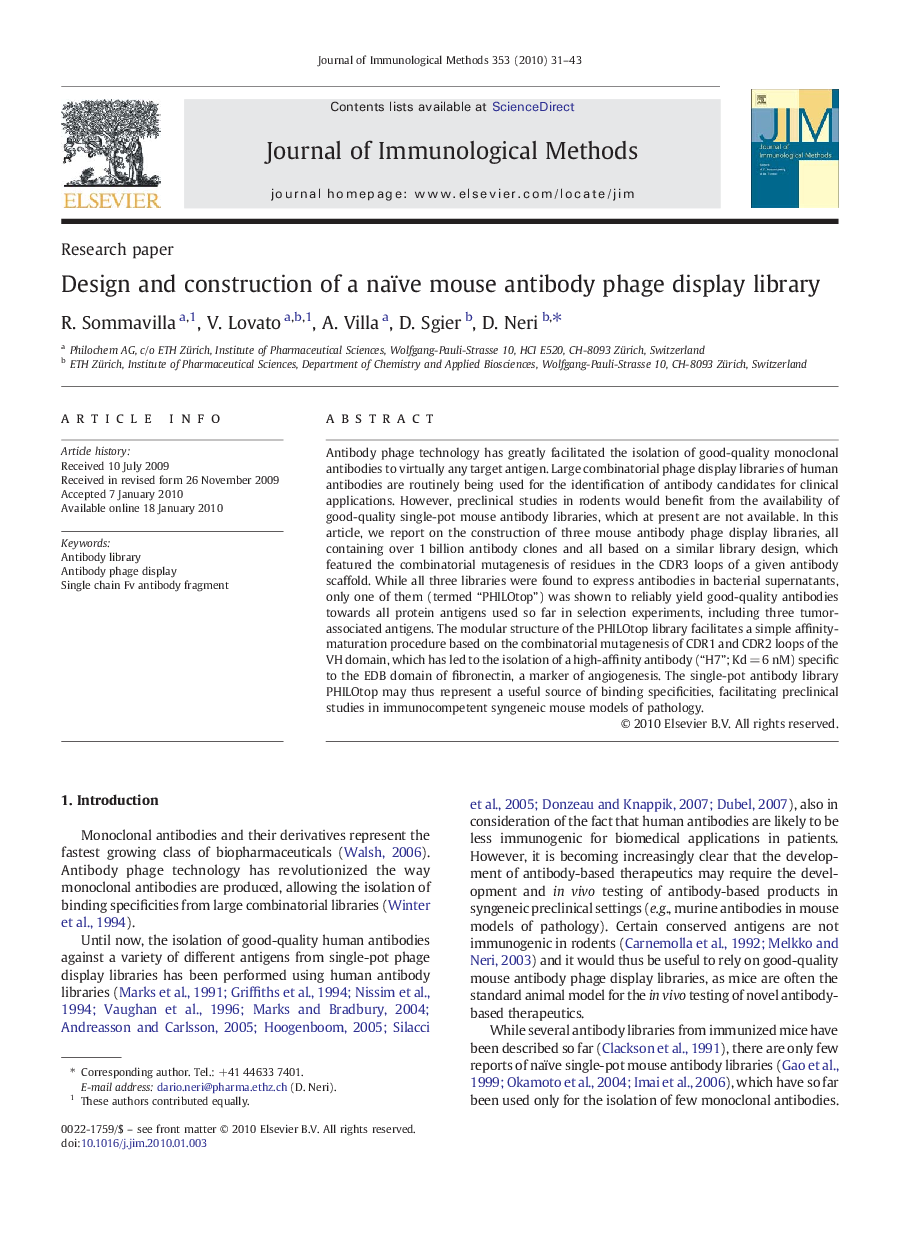| Article ID | Journal | Published Year | Pages | File Type |
|---|---|---|---|---|
| 2088619 | Journal of Immunological Methods | 2010 | 13 Pages |
Antibody phage technology has greatly facilitated the isolation of good-quality monoclonal antibodies to virtually any target antigen. Large combinatorial phage display libraries of human antibodies are routinely being used for the identification of antibody candidates for clinical applications. However, preclinical studies in rodents would benefit from the availability of good-quality single-pot mouse antibody libraries, which at present are not available. In this article, we report on the construction of three mouse antibody phage display libraries, all containing over 1 billion antibody clones and all based on a similar library design, which featured the combinatorial mutagenesis of residues in the CDR3 loops of a given antibody scaffold. While all three libraries were found to express antibodies in bacterial supernatants, only one of them (termed “PHILOtop”) was shown to reliably yield good-quality antibodies towards all protein antigens used so far in selection experiments, including three tumor-associated antigens. The modular structure of the PHILOtop library facilitates a simple affinity-maturation procedure based on the combinatorial mutagenesis of CDR1 and CDR2 loops of the VH domain, which has led to the isolation of a high-affinity antibody (“H7”; Kd = 6 nM) specific to the EDB domain of fibronectin, a marker of angiogenesis. The single-pot antibody library PHILOtop may thus represent a useful source of binding specificities, facilitating preclinical studies in immunocompetent syngeneic mouse models of pathology.
